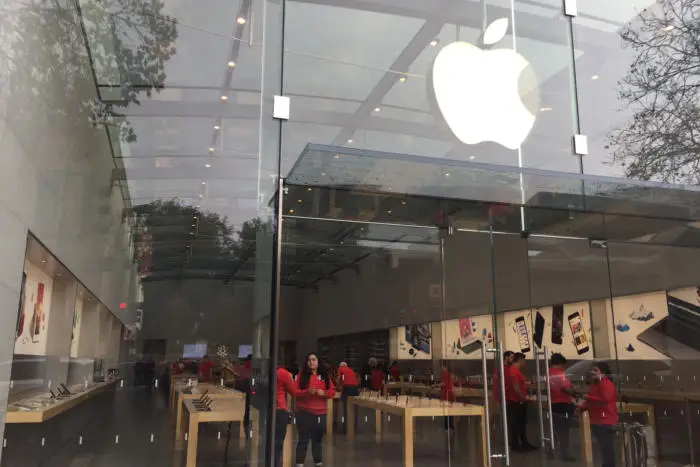Apple celebrates diversity, but a big test to its commitment to being inclusive will come at next month’s shareholder meeting.
The company is encouraging a vote against a proposal by shareholders to implement an accelerated hiring policy “to increase the diversity of senior management and its board of directors.”
But Apple’s senior management and board, who are mostly white, fails to represent the company’s “diversity and inclusion,” argued shareholders Zevin Asset Management and Antonio Avian Maldonado II. They explained their position Tuesday in a rebuttal to Apple’s opposition filed with the U.S. Securities and Exchange Commission.
“While Apple has increased overall diversity initiatives, most of these efforts involve junior staff working in the company’s retail operations. Changes in the makeup of senior management and board clearly lag those in the broader workforce,” the shareholders said.
A blurb of the original proposal, also called Proposal No. 6, was included in Apple’s proxy filing in early January, which also noted the company’s opposition. The shareholders further detailed their proposal in Tuesday’s filing.
The proposal will go up for a vote on Feb. 28 at Apple’s annual shareholder meeting, held in Cupertino.
Apple has asked shareholders to vote down the proposal for several reasons. The company wants to focus on diversity across the company, and not just the senior management and board, it said. Moreover, the company is actively seeking out minority and women for top positions.
It also doesn’t want the diversity policy to affect the recruitment process.
“We believe that the proposal is unduly burdensome and not necessary because Apple has demonstrated to shareholders its commitment to inclusion and diversity, which are core values for our company,” Apple said in its opposition.
But the shareholder rebuttal points out a lack of diversity in Apple’s current top management, with about 10 percent of posts occupied by minorities. It also points out that many top technology companies like Microsoft and Intel have established recruitment procedures that promote diversity.
Apple has taken steps toward being inclusive. Apple’s CEO Tim Cook is gay, and one of the company’s highest paid executive is Angela Ahrendts, senior vice president of retail.
Apple has put up a website where the company shares its diversity statistics. About 37 percent of the new hires from June 2015 to June 2016 were women, growing from 35 percent in 2015. About 27 percent of the new hires in the same period were underrepresented minorities, including 13 percent black hires and 13 percent Hispanic, growing from 24 percent for the same period over 2014 and 2015.
Not included in those one-year statistics ending June 2016 were Asians, who represented 24 percent of the new hires. Whites were 46 percent of the new hires.
Tying diversity to hiring practices has some advantages. Intel said that such a practice helps sales as it gives a better idea of how to better target products at diverse communities. Moreover, it encourages a new generation of women and minorities to get involved in STEM (science, technology, engineering, and math) fields.
The technology industry has for long been perceived as being sexist. In a 2014 interview, Microsoft’s CEO Satya Nadella said that not asking for pay raises is “good karma” for women. Intel came under fire for getting involved in GamerGate, a controversy over women’s influence and participation in gaming.
However, the chipmaker and other companies like Facebook have had trouble increasing their hires of minorities and women, with progress being slow.






